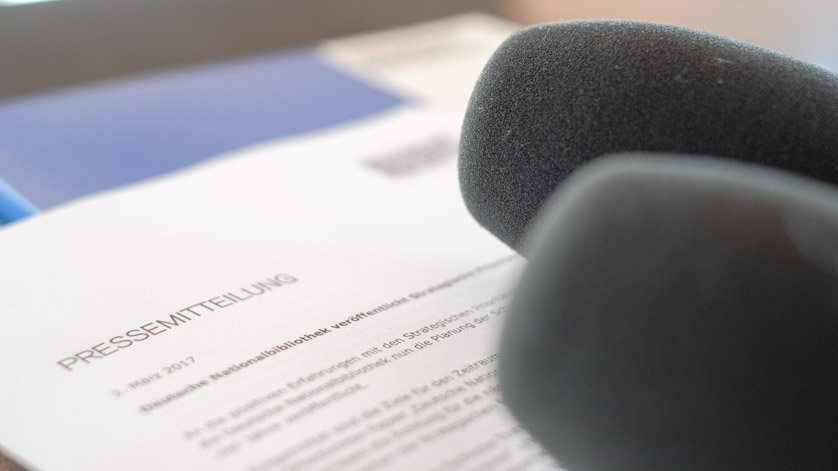German Museum of Books and Writing of the German National Library acquires European newspaper history collection

Press release: 19.12.2017
367 years after the first daily newspaper in the world was printed in Leipzig, the German Museum of Books and Writing of the German National Library in Leipzig has acquired a newspaper-history collection of European standing. Consisting of nearly 7,000 documents, it rounds off the museum's collections by focusing on this exceptional media history subject which combines regional and general history. Scarcely any other medium embraces the whole spectrum of book and media history issues like the newspaper; it interfaces with numerous aspects such as the history of technology, culture and society, as well as the history of knowledge and censorship.
Focusing primarily on the 18th to 20th centuries, the newspaper history collection was gathered by the Krefeld publisher Hans-Ulrich Nieter over a period more than 30 years. It is divided into 15 theme groups: handwritten precursors to the newspaper and leaflets are represented, as are rare documents on editing, publishing, advertising and distribution channels, but also on the history of censorship and newspaper readers. A collection of historical newspaper-related caricatures complements the holdings, as do war newspapers and biographical time capsules dedicated to prominent individuals in newspaper history. The significance of the collection lies in its thematic breadth and European orientation: after all, “Newspapers are one of the great cultural means by which we Europeans became Europeans,” as the historian, publicist and enlightener August Ludwig von Schlözer said at the end of the 18th century.
When the Leipzig printer and bookseller Timotheus Ritzsch (1614–1678) printed the world's first daily newspaper on 1 July 1650, Leipzig was the ideal location for the six issues per week of the “Wöchentlichen” (two years later, the “Einkommenden”) “Nachrichten”. As a trade fair city, Leipzig was an important communication hub, with frequent mail deliveries, a dense network of correspondents and a wealth of incoming newsletters. For centuries, the daily newspaper was the principal medium for gaining an overview of what was happening in the world. The success story of the newspaper as a mass medium in the 19th century was due to technical innovation and the fight for press freedom: 4,222 newspapers were published in Germany in 1914, the heyday of the newspaper industry. The Federation of German Newspaper Publishers still counts 333 daily newspapers in 2017.
As an integral part of the interdisciplinary collections of the German Museum of Books and Writing, the Nieter Collection represents a unique set of holdings on the past and present of the newspaper industry. Stephanie Jacobs, head of the museum, is delighted: “At a time when newspapers are undergoing the biggest upheaval in their history, acquiring such an extensive collection is a unique opportunity for our museum to review the past, to examine the historical documents from the perspective of current issues and to consider what the future might hold.” The collector Hans-Ulrich Nieter puts it succinctly: “The fact that the collection is now returning to Leipzig, one of the key early locations in newspaper history, fills me with great satisfaction, while making it easier for me to part company with the documents that have been with me for decades. I know the collection is in good hands in Leipzig.”
Background
The book has shaped our culture and civilisation like no other medium. For centuries our knowledge about the world and its peoples has been stored in books. The task of the German Book and Writing Museum of the German National Library is to collect, exhibit and process evidence of book and media history. Founded in 1884 in Leipzig as the Deutsches Buchgewerbemuseum (German Book Trade Museum), it is the oldest museum in the world in the field of book culture, and also one of the most important with regard to the scope and quality of its holdings.
Contact person
Dr. Stephanie Jacobs
Contact: s.jockel@dnb.de

